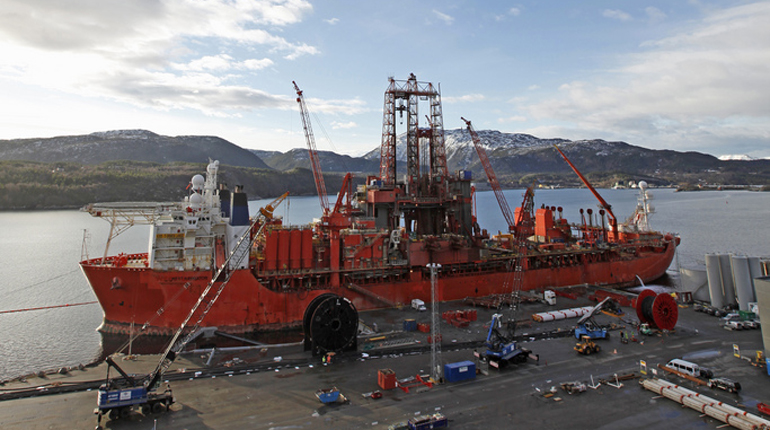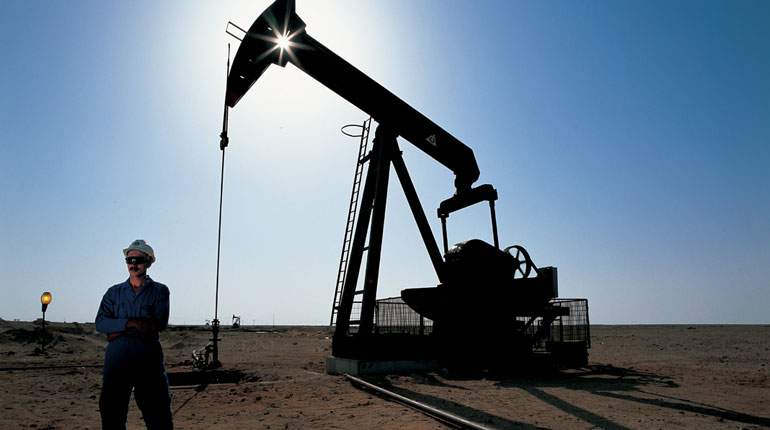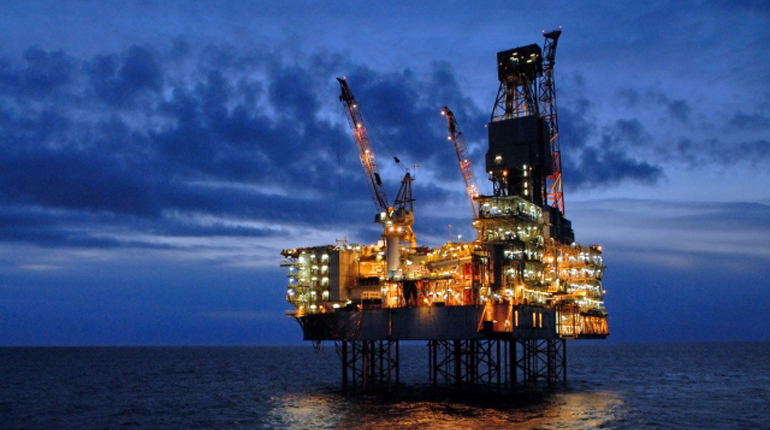 West Navigator Drillship, Norway. Shell and other majors have cut capital expenditure this year. (Shell)
West Navigator Drillship, Norway. Shell and other majors have cut capital expenditure this year. (Shell)
European oil and gas majors continue to struggle with low oil and gas prices, as last week’s Q2 results have heralded another round of spending cuts and project delays.
BP reduced its capital spending by around $1 billion for 2016 and expects full-year expenditure to be below its guidance figure of $17 billion, the company said in its Q2 results. Norway’s Statoil also said it will cut its capital spending for 2016, from $13 billion to $12 billion, and will reduce its exploration spending target, from $2 billion to $1.8 billion.
Italy’s Eni said its capital expenditure had already been reduced by 17% in the first half of 2016 from a year earlier, putting the group on track to meet its 20% reduction target for the full year. But Eni said the spending cuts are not expected to affect production growth, which is projected to grow by 5% in 2017.
The company has reduced spending on the massive Zohr find in Egypt, where it is drilling the fifth well in the southern part of the field. Claudio Descalzi, the company’s chief executive, said it invested €4.9 billion ($5.5 billion) in Zohr in the first half of the year – a 70% reduction from the first half of 2015.
Ben van Beurden, chief executive at Anglo-Dutch major Shell, said his company plans $29 billion of capital expenditure this year and $25-30 billion per year until 2020. This is a cut from an earlier projection that $33 billion would be spent this year.
France’s Total made $8.7 billion of investments in the first half of 2016 and expects to make a total investment of $18-19 billion for 2016 as a whole. "Efforts to reduce operating costs are continuing to bear fruit and we will surpass the $2.4 billion cost-reduction target for this year," Patrick Pouyanné, the company’s chairman and chief executive, said in a statement.
The spending cuts came as no surprise to analysts. "It doesn’t make sense to try to find new reserves right now, but we might see more M&A or sector consolidation," Augustin Eden, research analyst at Accendo Markets, told Interfax Natural Gas Daily.
The Brent crude price averaged $46 per barrel in Q2, up from $34/bbl in Q1 but still significantly lower than the $62/bbl seen a year earlier, BP noted in its results.
"Anybody just planning on having an oil price rebound in the next few years is missing the point," Jason Kenney, head of European oil and gas equity research at Banco Santander, told Interfax Natural Gas Daily.
"Disinvestment – meaning divestments – the reduction of capex, and the restructuring of projects by reducing costs of contracts and manpower is as important for oil companies as the new oil price leverage," he said.
"If you get disinvestment correct, you are fine, and it is the only way companies will weather the storm at the moment," he said.
"The cost base is resetting, and whether the [reduced] spending will eat into future growth is yet to be seen because a lot of companies are spending less on delivering the same kind of projects they were hoping to a year ago," Kenney added.
Disappointing results
Financial results disappointed across the board for all European majors. Statoil missed earnings targets in all areas and reported adjusted EBIT of $913 million, 33% below consensus, which was the second-lowest EBIT ever reported by the company. It struggled with low gas prices, a trend Statoil expects will continue in the near future.
"In the short term, we expect continued pressure on European natural gas prices," Hans Jakob Hegge, executive vice president and chief financial officer of Statoil, said in the earnings call on Wednesday.
The price that Statoil got for its gas in Europe was 32% lower in H1 2016 compared with the same period last year, the company said.
Teodor Sveen-Nilsen, equity researcher at Swedbank, said lower-than-expected production volumes, higher exploration costs – up by 26% against Swedbank’s forecast – and higher-than-expected operational costs contributed to the weak results.
Shell reported a 72% year-on-year drop in current cost of supplies (CCS) earnings in Q2. The company’s CCS earnings fell from $3.8 billion in Q2 2015 to $1.05 billion in Q2 2016. CCS earnings from integrated gas fell by 26% on an annual basis in Q2, to $982 million. Shell announced in July that it will delay the LNG Canada and Lake Charles LNG projects.
However, the company’s LNG sales volumes increased by 52% in Q2 2016, to 14.25 mt, reflecting Shell’s enlarged portfolio after the acquisition of BG Group. The company said the consolidation of BG resulted in higher operating expenses, which were partly offset by higher LNG and liquids production.
"The reality is that Shell has always been a very seasonal business and this is a transition year for the company incorporating the BG assets," Barclays said in a research note.
"We do expect the release to have negative implications for the stock short-term, but ultimately a rebalancing of the cash equation is happening and despite the seasonality in earnings Shell is, in our view, heading in the right direction," the bank said.
Total saw adjusted net income fall by 30% in Q2 2016, to $2.2 billion. However, increased production and the company’s cost-cutting programme helped mitigate the lack of revenue caused by the low oil price environment.








Talk to us
Natural Gas Daily welcomes your comments. Email us at [email protected].